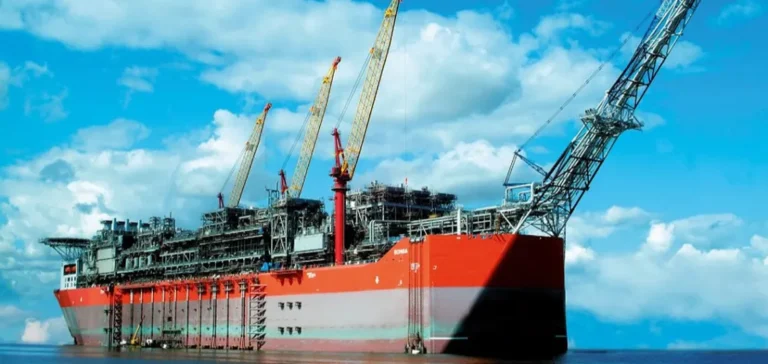TotalEnergies has announced the completion of the sale of its non-operated 12.5% interest in the deepwater Bonga oilfield, located offshore Nigeria, for $510mn. The transaction was executed by its local subsidiary, TotalEnergies EP Nigeria Limited (TEPNG), in favour of oil majors Shell and Eni. Shell acquired a 10% stake, while Eni secured the remaining 2.5% through pre-emption rights.
Shell, the operator of Oil Mining Lease 118, now holds a 65% stake in Bonga. Eni increases its share to 15%, while ExxonMobil retains the remaining 20%. The deal received approval from the Nigerian Upstream Petroleum Regulatory Commission (NUPRC) and was subsequently cleared by the country’s oil minister.
A strategic asset for offshore production
Bonga, which began production in 2005, is Nigeria’s first deepwater oil project. Located around 120 kilometres south of the Niger Delta, the field lies at a water depth of 1,000 metres. It has a production capacity of up to 225,000 barrels of crude oil per day and 150 million cubic feet of natural gas per day, remaining a key asset for involved operators.
In October, the field produced 120,000 barrels per day of heavy sweet crude, according to NUPRC data. Spain, Canada, Peru and the Netherlands are among the leading buyers of this grade, based on available market data.
Shell targets production growth in Nigerian offshore
Shell said the acquisition aligns with its strategy to strengthen investments in competitive existing assets and support long-term growth in oil and gas output. The company aims to increase its integrated hydrocarbon production by 1% per year through 2030.
Shell is also planning an expansion of the Bonga field via the Bonga North and Bonga Southwest developments. A Final Investment Decision (FID) was taken for Bonga North in December, targeting an additional 110,000 barrels of oil equivalent per day by 2030 through a subsea tie-back to the Bonga Floating Production Storage and Offloading (FPSO) unit. FID for Bonga Southwest could follow as early as 2027.
Gradual shift towards deepwater repositioning
The transaction forms part of a broader move by international oil majors to shift focus from the onshore Niger Delta to technically complex yet more secure offshore projects such as Bonga. The field illustrates a strategic reallocation towards stable offshore zones, distanced from the region’s socio-political unrest.
TotalEnergies, active in Nigeria for over six decades, produced 209,000 barrels per day in the country in 2024. Despite the divestment, the company maintains interests in major offshore assets including Egina, Akpo and Ofon, as well as in the Nigeria LNG (NLNG) terminal and the Ubeta gas field.
New agreement with Conoil and exploration outlook
On November 19, TotalEnergies announced it had signed an agreement to acquire a 50% operated interest in block OPL 257 from Nigerian company Conoil. The licence is located adjacent to TotalEnergies’ Egina South field. The group plans to drill an appraisal well in 2026, with the aim of tying it back to the Egina FPSO.
In parallel, TotalEnergies will transfer its 40% participating interest in the gas-rich OML 136 licence, also offshore, to Conoil. The asset reshuffle reflects a portfolio optimisation strategy balancing mature developments with targeted exploration zones.






















